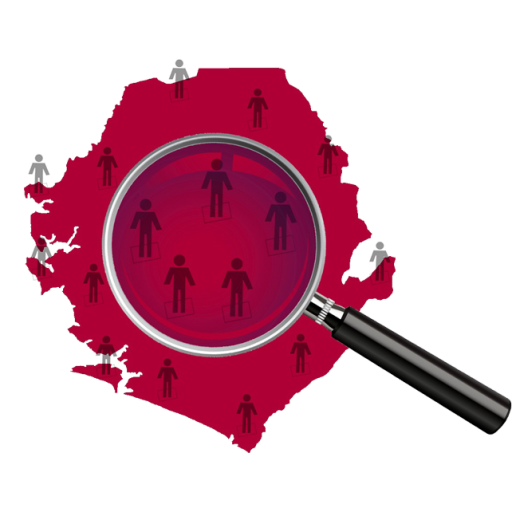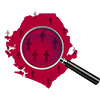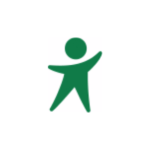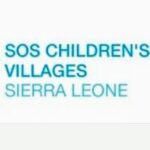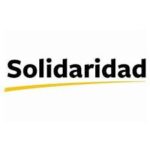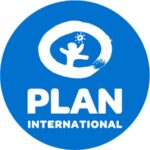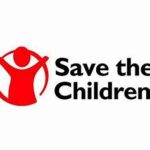Job Overview
-
Date PostedMay 7, 2024
-
Location
-
Expiration dateMay 16, 2024
-
Experience2 Years
-
OrganizationChild Fund
-
Required LanguagesEnglish, Krio
Job Description
Terms of Reference for Endline Evaluation
Title Evaluation: Endline Evaluation of the Community Action for Child Protection and Education project
| Project Title: Community Action for Child Protection and Education (CAPE)
Project Location: Sengbeh, Wara Wara Yagala and Gbonkobokayaka chiefdoms in Koinadugu District Project Duration: June, 2021 – May, 2024 (36 months) Duration of Evaluation: Three weeks (including submission of final report) |
- About ChildFund
| ChildFund is a child-focused international development organization that works in 23 countries to connect children with the people, resources and institutions they need to grow up healthy, educated, skilled and safe, no matter where they are.
ChildFund’s Values ChildFund values a diverse, equitable, inclusive, and accessible environment where everyone is welcomed and celebrated equally. In our culture of connection, you will have ample opportunity to grow, learn, and lead while contributing your talents and innovations to our inspiring mission. ChildFund’s Commitment ChildFund International has a zero-tolerance policy regarding sexual exploitation, abuse and harassment (SEAH) and all other forms of harm by its staff, partners, and other representatives in the delivery of its mission and services for children. ChildFund is committed to creating a safe environment in the workplace as well as in the communities where it delivers programs and services. ChildFund expects every staff member, partner, and representative to adhere to this commitment and to ensure all organizational policies and standards are followed. This position is subject to a range of vetting checks, including criminal records check and/or disclosure to ensure program participants are safeguarded. |
Project Summary:
With funding from ChildFund Korea, ChildFund Sierra Leone in partnership with Daindemben Federation implemented a 36-months project in 6 communities and schools in 3 three chiefdoms in Koinadugu District. The goal of the project was to see that all children are protected from all forms of violence and fulfil their rights to live in a safe environment in Koinadugu district.
The project utilized an integrated community approach with interlinked Child Protection, Education, Sexual Reproductive Health and Right (SRHR), Family Economic Empowerment , Water Sanitation and Hygiene (WASH) and Renewable energy (Solar Electrification) activities aimed to address issues (Child labor, teenage pregnancy, early marriage, FGM/C, School dropout, school-based violence, poor sanitation in schools etc.) that affect the growth, development and wellbeing of children in schools and communities.
- Project Goal:
All children are protected from all forms of violence and fulfil their rights to live in a safe environment in Koinadugu district.
- Project Outcomes:
Outcome 1: Children are able to raise their voice to promote their rights and to protect themselves and peers from violence and abuse
Outcome 2: Schools have a safe learning environment to protect children.
Outcome 3: Parents/caregivers have a protective home environment for their children that is secure economically and emotionally
Outcome 4: Community-based child protection mechanisms have strengthened to protect children within communities.
- Stakeholders and Beneficiaries
The key target groups and final beneficiaries for this action include: pupils/children, parents, teachers, School Management Committees (SMCs), Village Savings and Loan Associations (VSLAs) Child-Based Child Protection Committees (CBCPCs), officials of the Ministries of education, Teaching Service Commission, Family Support Unit, Ministry of Gender and Children’s Affairs (MoGCA) and the District Council.
Objective of the Endline Evaluation:
The endline evaluation will seek to access and assess information on knowledge, attitude and practice on Child Protection, Education, Sexual Reproductive Health and Right (SRHR), Family Economic Empowerment, Water Sanitation and Hygiene (WASH) and Renewable energy (Solar Electrification) from children, and adults in the targeted schools and communities in Wara Wara Yagala, Sengbeh and Gbonkobokayaka chiefdoms Koinadugu district. The assessment will focus on the impact(s) of the project implementation,
Areas of enquiry
In order to achieve the above-mentioned objectives of the endline assessment, the consultant will design questions from the thematic areas mentioned above in line with the indicators in the Project Design Matrix:
Project Design Matrix
| Narrative Summary | Verifiable Indicator | Means of
Verification |
Assumptions | Baseline | Endline |
| Goal
All children are protected from all forms of violence and fulfil their rights to live in a safe environment in Koinadugu district. |
% of children who report feeling safe in their caregiving environment including home, school and community by FY2024
% of children who have received response service for VAC in timely and appropriate manner |
Project Evaluation Report, Monitoring report, annual and final project report. |
|
|
|
| Outcome
1. Children are able to raise their voice to promote their rights and to protect themselves and peers from violence and abuse |
% of children who demonstrate knowledge of the services available in their communities to support them
% of children who know where to report cases of risks and violence against children |
Monitoring visit report and project progress report | . |
|
|
| 2. Schools have a safe learning environment to protect children. | # or % of safe and ethical referrals of children to Child Protection service made by teachers and education personnel.
% of education personnel that have signed the Code of Conduct at their schools |
Monitoring visit report and project progress report | |||
| 3. Parents/caregivers have a protective home environment for their children that is secure economically and emotionally. | % of caregivers who demonstrate a practicing responsive and protective caring to their children
% of caregivers who report a reduction in the use of risky or harmful coping mechanisms Proportion of parents/caregivers who reported increase/secured household income and are able to meet the basic needs of their children |
Project evaluation report, progress and end of project reports. | |||
| 4. Community-based child protection mechanisms have strengthened to protect children within communities. | % of established community-based child protection structures supported to adequately follow government procedures to report at least 75% of child abuse cases within the appropriate timing | Project evaluation report, progress and end of project reports. | |||
| Output
1.1. Children actively participate in child protection issues in schools and communities. |
# of girls/boys who participated in child protection activities in schools and communities
# of girls/boys who participated in integrational dialogue with duty bearers |
Activity report, quarterly, semi-annual and annual report, photos | |||
| 1.2. Children are aware of how to respond to child protection issues. | # of girls/boys who know how to appropriately report abuse cases in schools and communities | Monitoring report, FSU case file/ledger | |||
| 2.1. Teachers and school structures are capacitated with knowledge and skills to respond to child protection issues. | # of teachers and SMC members trained in child protection and referral protocols disaggregated by sex and location/schools
# and types of trainings organized for teachers. |
Impact evaluation and monitoring reports, final evaluation report, final project report | |||
| 2.2. Children have access to safe and clean water, sanitation and hygiene environment in schools. | # of girls/boys with knowledge and skills in basic hygiene and sanitation best practices
# of schools with appropriate sanitation facilities that services able and disable pupils and teachers |
Monitoring report, final project report | |||
| 3.1. Parents/caregivers have finance resources to protect their children. | # of parents/caregivers enrolled e in VSLA
# of parents/caregivers who reported increase in household income as a result of soft loans and share out capital of VSLA activities/participation |
Activity report, quarterly, semi annual and annual report. | = | ||
| 3.2. Parents/caregivers have knowledge and skills on child protection and positive parenting. | # of parents/caregivers with improved knowledge and skills in responsive/positive parenting | Activity report, quarterly, semi annual and annual report. | |||
| 4.1. CBCPCs have identified in community. | # of community-based child protection structures identified and mapped | Project assessment report, Activity, quarterly, semi annual and annual report. | |||
| 4.2. CBCPCs have knowledge and skills to respond to child protection issues. | # and types of child protection structures participated in child protection trainings
# of child abuse and protection cases reported by community structures disaggregated by types and locations |
||||
| 4.3. CBCPCs have capacity to coordinate and respond to stakeholders in communities to protect children. | # of advocacy sessions organize
# of bylaws instituted |
||||
| Activities
1.1.1 Establish kids’ clubs in schools 1.1.2 Train kid club members on child protection and reporting mechanism: communities 1.1.3 Train kid club members on advocacy and lobbying skills 1.1.4 Integrational dialogue between children and duty bearers 1.2.1 campaign on child rights, child protection and referral pathways in schools 1.2.1 Sensitization campaign of pupils in violence prevention 1.2.3 Training of pupils in life skills 2.1.1 Train teachers in child protection and referral protocols 2.1.2 Train school structures in child protection and referral protocols 2.2.1 Assessment of selected schools for available WASH facilities 2.2.2 Construct and rehabilitate toilets offices 2.2.3 Provide hand wash facilities 2.2.4. Repair water wells 2.2.5 Train pupils on sanitation and hygiene management 2.2.6 Provide local sanitary pads to girls 2.2.7 Install rain water harvesting system 3.1.1 Establish and train VSLAs 3.2.1 Train parents on child protection and positive parenting 4.1.1 Mapping of existing CBCPCs 4.1.2 Develop action plans 4.2.1 Train CBCPCs in CP, PFA, referral pathways 4.2.2 Train CBCPCs in advocacy and lobbying skills 4.3.1 Meet with relevant stakeholders (district councils, FSU, etc.) 4.3.2 Advocate to institute strong bylaws 4.3.3 Community sensitization campaign on child protection 5.1 Electrification of 3 schools with 500W solar power facilities |
Inputs
1. ChildFund Korea Financial support 2. Implementing Organization Staffing Motorbike Fuel for motorbike |
||||
- Scope of work and target respondents
The endline assessment will be carried out in all 6 schools and communities. The consultant will sample stakeholders in all of these schools and communities using participatory methodologies. Data will be collected from the targeted groups stated below.
|
|||||||||||||||||||||||||||||||||||||||||||||||||||||||||||||||||||
Project Locations
| Chiefdom | Community | School |
| Gbonkobokayaka | Kamasapie | DEC Primary School |
| Sengbeh | Ismaia | Alharrkan Islamic Primary school |
| Sengbeh | Malaforia | DEC Primary School |
| Wara Wara Yagala | Kanunka | DEC Primary School |
| Wara Wara Yagala | Senekedugu | DEC Primary School |
| Sengbeh | Koinadugu II | Movement of Faith Junior Secondary school |
Methodology:
The endline assessment will be based on literature review of existing information on education and child protection in Koinadugu district, as well as a desk review of project implementation documents. Field work will be conducted by visiting the project communities and interviewing project participants.
The consultant/firm will be required to submit a technical proposal with a clearly defined framework for the entire endline process. This will include but not limited to the proposed structure of the field visit, the methodology, a detailed budget and necessary tools to accomplish the job.
Deliverables/Out Puts
Three key deliverables will be required:
- Inception Report: The consultant should share detailed work plan, research methodology and proposed budget.
- Draft Report: First draft report of the assessment to be prepared and shared with ChildFund team for their review to inform the final report
- Final Report: The final report produced and submitted to ChildFund for review and approval.
- Profile of prospective Consultant:
- Experienced researcher in Sierra Leone with track record of a similar or related topic
- In-depth knowledge on the education system in Sierra Leone with specific understanding of primary education in Koinadugu district
- Experienced researcher in Community Based Child Protection (CBCP) strengthening
- Excellent understanding of laws and policies on education, child welfare, economic empowerment, and WASH in Sierra Leone including the Education Act of 2004 (revised in 2023), the teachers’ codes of conduct, Child Right Act 20017, Child Welfare Policy 2014, Women Empowerment Policy 2020, National WASH Protocol, school-based violence prevention strategies etc
- A strong understanding of formal education multi-sectoral coordination and inter-organizational coordination mechanism in Sierra Leone
- Excellent communication skills including oral and writing skills
- Readily available to carry out the assessment
- Ability to live in and adapt to rural settings
- Strong belief and value for children and girl child education
- Endline Evaluation Report Format:
- Title Page
- List of acronyms and abbreviations
- Acknowledgment
- Table of contents
- Executive Summary
- Introduction/Background: project
- Description of the project
- Purpose of the baseline
- Approach and methodology, scope of the baseline
- Key areas of enquiry
- Limitations
- Summary Findings
- Explanation of findings and interpretations of results
- Lessons Learnt
- Challenges and Recommendations
- Conclusions
- Annexes (Questionnaire, photos, etc.)
The deadline for expression of interest is 16th May, 2024.
Application Process
We invite interested candidates to submit the following application documents:
- Expression of interest including relevant expertise, previous relevant work
- Proposed approach for the evaluation and activity plan
- Detailed budget inclusive of cost for field research
- Curriculum Vitae
- Two relevant references
Expressions of interest should be submitted to the Procurement Committee through SierraLeoneProcurement@ChildFund.org
Or Hand Delivery at ChildFund’s Office: 84 Regent Road, Hill Station, Freetown, Sierra Leone
- Note: Successful consultant will be required to sign the ChildFund Child Safeguarding policy.
